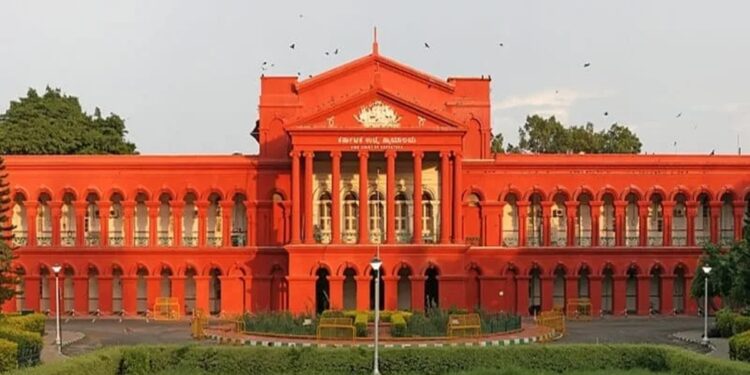The Karnataka High Court quashed charges against the two individuals who were arrested for allegedly entering a mosque in Kadaba taluk, Dakshina Kannada district, and chanting ‘Jai Shree Ram’ slogans. The case sparked discussions around religious sentiments and legal interpretations of offences under the Indian Penal Code (IPC).
A single-judge bench, led by Justice M Nagaprasanna, heard the petition filed by Kirtan from Bilidenele village (Puttur) and Sachin from Kaikamba (Mangalore). The petitioners sought the dismissal of the First Information Report (FIR) registered at Kadaba Police Station and the ongoing judicial proceedings at the Second JMFC Court of Puttur. The High Court concluded that chanting ‘Jai Shri Ram’ did not constitute an offence under Section 295A of the IPC, which pertains to acts that deliberately insult the religion or religious beliefs.
The court observed that the complainant himself acknowledged that Hindus and Muslims live harmoniously in the area, casting doubt on the argument that the actions of the accused had harmed religious sentiments. Justice Nagaprasanna remarked that continuing the case would be an abuse of the process of law and ordered the proceedings to be quashed.
The incident took place on September 24, around 10:50 pm, at the Badria Jumma Masjid located in Mardhala, Aittoor village. The two accused entered the mosque premises and chanted ‘Jai Shri Ram’, leading the mosque staff to file a complaint with Kadaba Police Station. The FIR charged the duo under multiple sections, including 447 (criminal trespass), 505 (statements causing public mischief), 506 (criminal intimidation), 34 (common intention), and 295A (hurting religious sentiments).
During the hearing, Advocate B S Sachin, representing the petitioners, argued that the accusations were baseless. He emphasized that simply entering the mosque did not amount to trespassing and chanting religious slogans should not be interpreted as a criminal act. He contended that the allegations were far from the truth and urged the court to annul the case.
Advocate Soumya, appearing for the Government, argued that further investigation was necessary, urging the court to reject the petitioners appeal for dismissal. However, the High Court sided with the petitioners, emphasizing the lack of evidence to support claims of insult or harm to religious sentiments.
The High Court referenced a Supreme Court judgment from the case of Mahendra Singh Dhoni vs Yarraguntla Shyamsunder (2017), which clarified the application of IPC Section 295A. The ruling indicated that for an act to qualify under Section 295A, it must disrupt public order or be part of a deliberate attempt to insult a religion. The court found that the actions of the petitioners did not meet the criteria.
Justice Nagaprasanna further noted that legal proceedings based on such allegations should not be pursued if they lack substantial grounds. The bench reiterated that mere chanting of Jai Shri Ram within the mosque did not, in itself, demonstrate any intent to harm religious sentiments, especially given the acknowledgement of peaceful coexistence between different communities in the region.
The High Court’s decision to dismiss the case has wider implications, reinforcing the need for clear evidence when invoking charges that concern religious sentiments. The ruling underscores that legal provisions should not be used to escalate minor incidents without proper substantiation. Additionally, the decision reflects the judiciary’s commitment to ensuring that the law is not misused to cause unnecessary legal harassment.
By setting aside the charges, the court has sent a strong message that actions, especially those in the context of religious expression, need to be carefully examined to determine whether they genuinely constitute an offence. This judgment again highlighted the fine line between maintaining public order and upholding individual freedoms in India’s diverse social fabric.

















Comments